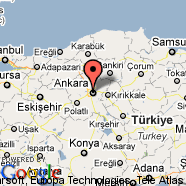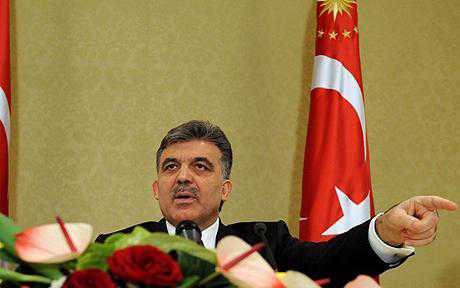News Diplomacy
‘Chatham House award symbol of Turkey’s resilience’
Britain’s Queen Elizabeth II presents the Chatham House Prize to Turkish President Abdullah Gül. President Abdullah Gül praised Turkey’s achievements in the past decade right after he received the prestigious Chatham House Award late on Tuesday, saying that the award he received honors the “resilience” of the Turkish nation.
Queen Elizabeth II presented the award during a ceremony, praising the president’s “notable leadership” for improving international relations.
“I accept this award with profound honor and humbleness on behalf of my beloved country and the people of Turkey,” President Gül said as he accepted the award. “Although I take personal pride in receiving it, the award presented to me tonight truly acknowledges the progress achieved by the Turkish nation in recent years despite many internal and external difficulties,” he added.
Noting that the prize also honors the resilience and perseverance of a people who have never lost their aspiration for progress and hope in a better future, Gül said all witnessed “a silent revolution” in democratic, social and economic standards that is taking place in Turkey’s quest for full membership in the European Union.
According to the president, the prize signifies the role played by Turkey in its multidimensional neighborhood and beyond, where the country nurtures peace, stability and welfare. Praising Turkey’s inspiring role in the Islamic world as a vibrant democracy and a flourishing free-market economy, Gül said the prize symbolizes the success of a hard-working people, whose “sweat was key to making Turkey the fastest growing economy among the OECD members this year,” the president stressed.
Finally, Gül said, the award that he received thoroughly certifies, once again, the eternal friendship between Turkey and the United Kingdom, whose alliance and cooperation made a huge difference in history and are destined to offer even more promising prospects in the future. The queen, while presenting the Turkish president the award, said she was delighted to welcome the president and his spouse to London to receive this important award.
“Mr. President, I remember with gratitude your very kind hospitality during my state visit to Turkey in 2008,” the queen said, adding that Gül had provided “notable leadership” and “international statesmanship” over many years. She offered her congratulations by presenting this award on behalf of the Royal Institute of International Affairs. The queen also praised Gül for his efforts to secure Turkey’s place in the 27-nation bloc and to improve the level of democracy and human rights in his country.
11 November 2010, Thursday
TODAY’S ZAMAN İSTANBUL






